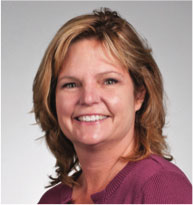The third in a series of articles focusing on detailed updates on the priorities of the WCC 2012-15 Strategic Plan, “Shaping Our Future”
“Increasing Institutional Agility and Responsiveness” is the third of the eight priorities reflected in the 2012-15 WCC Strategic Plan “Shaping Our Future”. This broad-reaching priority focuses on ways in which the college will address external needs, forces, and trends. Areas the college will focus on in the near future include: rapid curricular responsiveness; expanded reach of course offerings, curriculum and students; judicious integration of technologies into the learning process and innovative approaches to instruction; and responding to emerging trends in higher education.

A priority team led by Deans Jim Egan and Marilyn Donham oversaw best practice research for this priority throughout 2012-13. Because of its importance to instruction, efforts for the priority team have been primarily focused on the possibility of a new model to foster freedom in innovation for faculty work. The primary goals for 2013-14 were therefore: “Meet employer needs through rapid curricular innovations” and “Focus on judiciously integrating learning technologies into the learning process, and emphasize innovative approaches to instruction.”
One of the primary ways these goals are being addressed is through the creation of a Center for Excellence and Innovation. The Center will serve as a central point of contact, enable faculty innovative curriculum processes, and provide evaluation of MOOCs, competencies, and other innovative models. Many models at other colleges have been examined for successful examples of centers, whether physical, virtual, or both, which promote instructional innovation. During the winter of 2014, information on current WCC faculty innovations was compiled, and a working group of faculty members and administrators started meeting to discuss how best to implement this concept. Current action steps include:

- Promoting innovative faculty work by providing examples of innovative instructional practices on a central web site, adding the topic of faculty innovation to the Faculty meeting agenda, and highlighting faculty innovations in Water Cooler and On The Record.
- Seeking more options at WCC for faculty to share innovations across departments (e.g. in-service or on the web) or innovative pilot projects, perhaps through a center, hub, or incubator.
In addition to the contributions of this working group and the priority chairs, the WCC faculty and staff have played a significant role in moving other college goals forward that are aligned with this strategic priority. These include the continued expansion of quality distance learning options, becoming a member of the Michigan Community College Virtual Learning Collaborative (MCCVLC), establishing the use of Digital Learning Studios, and continued enhancements of instructional technology across campus.
Thanks go to priority chairs Egan and Donham for their groundwork on this project, and to the faculty and staff who are part of this working group: Bill Abernethy, Rose Bellanca, Kris Brandemuehl, Susan Dentel, Cristy Lindeman, Victor Liu, Coley McLean, Julie Morrison, Mary Mullalond, and Kristine Willimann.
